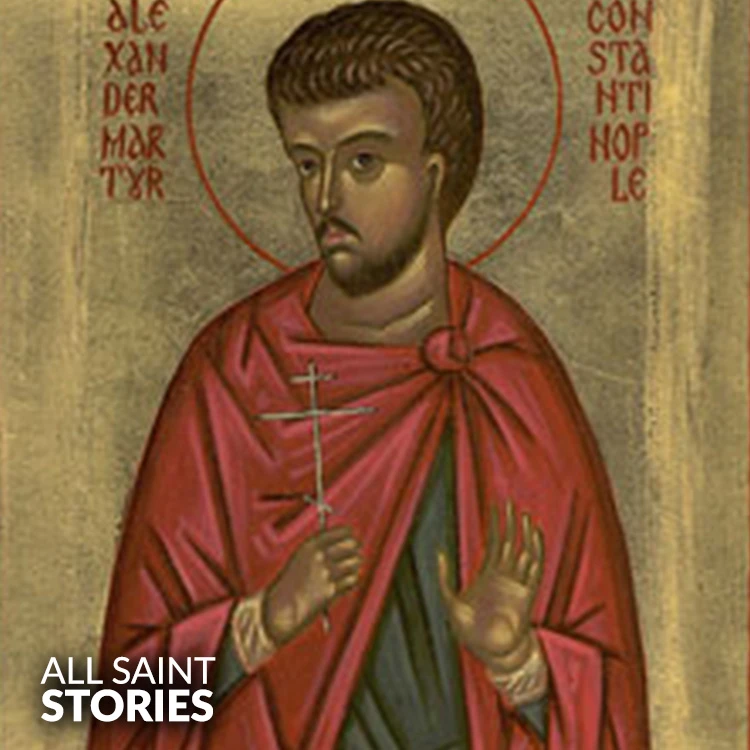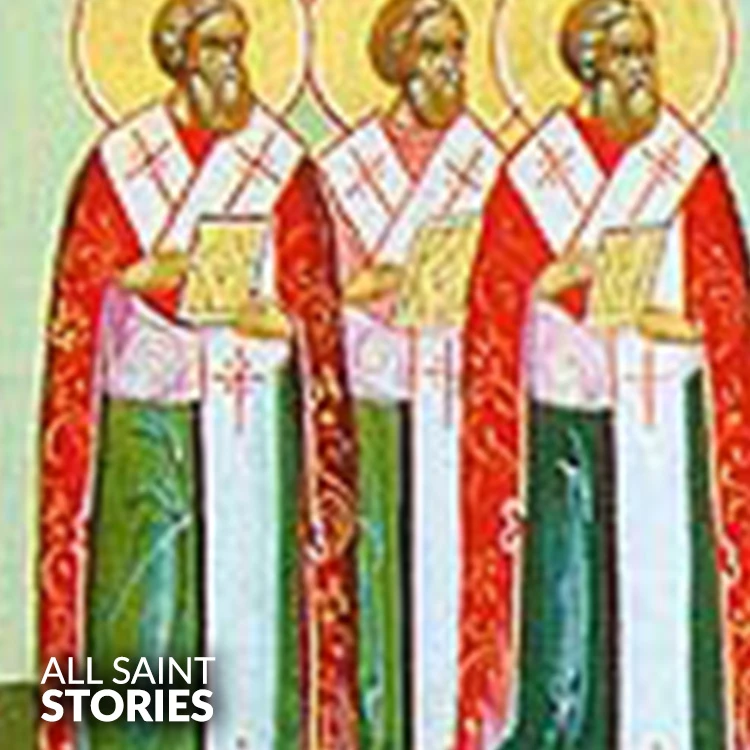St. Alexander, Defender of the faith and servant of Christ, Pray for us to stand firm in truth and love. Help us to live with wisdom and courage, Always seeking to glorify God in our lives. Amen.
ST. ALEXANDER OF CONSTANTINOPLE
ST. ALEXANDER OF CONSTANTINOPLE

St. Alexander of Constantinople (c. 237–337 AD) was the first Archbishop of Constantinople and a key figure in the early Church’s battle against Arianism. He attended the First Council of Nicaea and upheld the Nicene Creed. Revered for his holiness and wisdom, he resisted heretical teachings and prayed fervently for the preservation of the faith. He is commemorated on August 30.
St. Alexander of Constantinople, born around 237 AD, was a central figure in the formative years of the Christian Church, particularly during a time of significant theological conflict and imperial transformation. He became the first bishop or archbishop of Constantinople, a role that would later hold immense influence in both the Eastern Orthodox and wider Christian tradition. Though his early life remains obscure, what is known about his ecclesiastical career reveals a man of deep faith, spiritual insight, and unwavering commitment to Christian orthodoxy.
Alexander first rose to ecclesiastical prominence when he was appointed vicar or coadjutor to the aged Bishop Metrophanes of Byzantium, who was unable to fulfill the demands of his position due to old age. At that time, Byzantium had not yet been transformed into the imperial city of Constantinople, but the groundwork for its rise in religious significance was already being laid. When Metrophanes died around 314 AD, Alexander succeeded him, eventually becoming the bishop of what would soon become the empire’s new capital.
St. Alexander's episcopacy coincided with one of the most critical periods in Church history—the Arian controversy. Arianism, a theological position advanced by Arius, claimed that Jesus Christ was not equal to God the Father but rather a created being. This teaching threatened the foundational beliefs of Christianity, particularly the doctrine of the Trinity. The controversy became so widespread and divisive that Emperor Constantine convened the First Ecumenical Council at Nicaea in 325 AD.
Alexander is believed to have been present at the Council of Nicaea, where he stood firmly against Arius and his teachings. The council ultimately condemned Arianism and produced the Nicene Creed, a foundational statement of Christian orthodoxy that affirmed the consubstantiality of the Son with the Father. Alexander’s role in upholding the Nicene position demonstrated his theological conviction and his commitment to the integrity of the faith handed down by the Apostles.
After the Council, the implementation and enforcement of the Nicene decisions proved to be contentious and fraught with political maneuvering. Arius, despite being condemned, sought to be reinstated in the Church with the support of sympathetic imperial and clerical figures. One of the most well-known episodes in Alexander’s life involved his staunch opposition to allowing Arius back into communion. Arius traveled to Constantinople to demand readmission to the Church, and there was great pressure on Alexander to comply. According to tradition, Alexander retreated to fervent prayer, imploring God to prevent a heretic from being allowed to partake in the sacraments if he remained unrepentant.
A remarkable event followed: on the day Arius was to be reconciled with the Church, he suddenly became ill and died under suspicious and dramatic circumstances—reportedly suffering a violent death in a public latrine. Many in the Christian community at the time interpreted this as divine judgment, a vindication of Alexander’s spiritual insight and the truth of the Nicene doctrine.
St. Alexander's final years were spent continuing to defend the orthodoxy established at Nicaea. He led his flock with humility and wisdom, becoming a symbol of pastoral care and theological clarity. He died around 337 AD, the same year as Emperor Constantine, marking the end of a pivotal era in Church history. His death also ushered in the episcopacy of St. Paul the Confessor, another staunch defender of Nicene Christianity.
St. Alexander is especially venerated in the Eastern Orthodox Church, where he is commemorated on August 30 along with St. John Chrysostom and St. Gregory the Theologian as one of the Three Hierarchs of Constantinople. His memory is honored for his piety, his doctrinal defense against heresy, and his unwavering commitment to Christ’s teachings. Though his name may not be as widely known as some of his contemporaries, his influence was foundational in shaping the theological and ecclesial identity of the early Church.
Video Not Found
The information on this website is compiled from various trusted sources. While we aim for accuracy, some details may be incomplete or contain discrepancies.
If you notice any errors or have additional information about this saint, please use the form on the left to share your suggestions. Your input helps us improve and maintain reliable content for everyone.
All submissions are reviewed carefully, and your personal details will remain confidential. Thank you for contributing to the accuracy and value of this resource.
Credits & Acknowledgments
- Anudina Visudhar (Malayalam) – Life of Saints for Everyday
by Msgr. Thomas Moothedan, M.A., D.D. - Saint Companions for Each Day
by A. J. M. Mausolfe & J. K. Mausolfe - US Catholic (Faith in Real Life) – Informational articles
- Wikipedia – General reference content and images
- Anastpaul.com – Saint images and reflections
- Pravachaka Sabdam (Malayalam) – Saint-related content and insights
We sincerely thank these authors and platforms for their valuable contributions. If we have unintentionally missed any attribution, please notify us, and we will make the correction promptly.
If you have any suggestion about ST. ALEXANDER OF CONSTANTINOPLE
Your suggestion will help improve the information about this saint. Your details will not be disclosed anywhere.
© 2026 Copyright @ www.allsaintstories.com



 English
English
 Italian
Italian
 French
French
 Spanish
Spanish
 Malayalam
Malayalam
 Russian
Russian
 Korean
Korean
 Sinhala
Sinhala
 Japanese
Japanese
 Arabic
Arabic
 Portuguese
Portuguese
 Bantu
Bantu
 Greek
Greek
 German
German
 Dutch
Dutch
 Filipino
Filipino